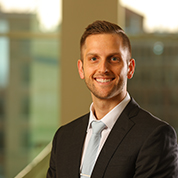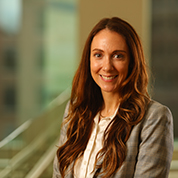Research
Because we recognize the educational value provided by focused research training, the Neurological Surgery Residency Program designates and funds a 12 month research experience. During this period, the resident is designated as a Research Fellow in Neurological Surgery and works in a research laboratory with a departmental research faculty member or a faculty member from a related URMC research area.
The department has close associations with our colleagues in the Department of Neurology, and in the Divisions of Neuropathology and Neuroradiology as well as the Clinical Translational Science Institute. The department with the approval of the ACGME has a 6 month International Research Skull Base rotation in Australia for those residents interested in applying. In addition, the department has close interactions with affiliated laboratories and research centers in both the medical center and adjacent university campus that include:
- Program for Translational Brain Mapping (Pilcher/Mahon/Garcea)
- 3D Surgery Simulation Lab (Stone)
- Neurooncology (Walter)
- The Center for Neural Development and Disease (Gelbard)
- Division of Glial Disease and Therapeutics (Nedergaard)
- The Center for Translational Neuromedicine (Nedergaard, Goldman)
- The Stem Cell Institute and Regenerative Medicine (Noble)
Resident Research Focus
Nate Ellens, MD

As a PGY-5 neurosurgery resident at the University of Rochester, I had the opportunity to complete our enfolded endovascular neurosurgery fellowship. Because I had significant exposure to the angiography suite earlier in residency, I was able to quickly transition to the role of an enfolded fellow. This allowed me to participate in a wide variety of procedures including coiling aneurysms, treating AVMs and fistulas, and performing mechanical thrombectomies. Obtaining this endovascular experience during residency is atypical but extremely valuable and provides a strong foundation for me to build off as I pursue a career in vascular neurosurgery.
During my PGY-6 and PGY-7 year, I plan to serve as a neurosurgery chief resident. These two years will allow me to develop my open surgical skills as I operate on the broad scope of cranial and spinal neurosurgical patients. After graduating from residency at URMC, I have accepted an endovascular fellowship position at Thomas Jefferson University in Philadelphia, PA. This was the first CAST accredited endovascular neurosurgery fellowship program and, under the leadership of Drs. Jabbour and Tjoumakaris, remains one of the busiest in the country. This experience will provide a final layer of technical training and mentorship to round out my vascular training experience and position me well as I pursue my career in vascular neurosurgery.
Gabrielle Santangelo, MD

During my PGY-5 year at the University of Rochester, I completed a research year focusing primarily on surgical simulation for education and spine outcomes. In Dr. Stone’s laboratory at URMC, I developed a whole-task simulator for durotomy repair, a 3D printed skull for microvascular practice, and among other clinical projects. Additionally, I was involved in several multi-institutional collaborative efforts studying outcomes in adult deformity, degenerative spine and peripheral nerve with the University of Pennsylvania and the Mayo Clinic. I also spent time working on the CNS neurosurgery survival guide content and on the CNS guidelines podcasts.
As a PGY-6 resident, I will be doing an enfolded fellowship in complex spine at the University of Pennsylvania. This will afford me the opportunity to be exposed to a wide breadth of spine surgery with rotations in deformity, MIS, tumor and trauma. I will also continue to be academically productive by forwarding ongoing collaborative efforts and will remain active in organized neurosurgery during this year. During my PGY-7 year, I will return to the University of Rochester to serve as chief resident. As a post-graduate, I have accepted a fellowship position at Northwell Health in New York in spine oncology with Dr. Sciubba to complete my subspecialty training with the ultimate goal of becoming an academic spine surgeon with a focus in oncology and deformity.